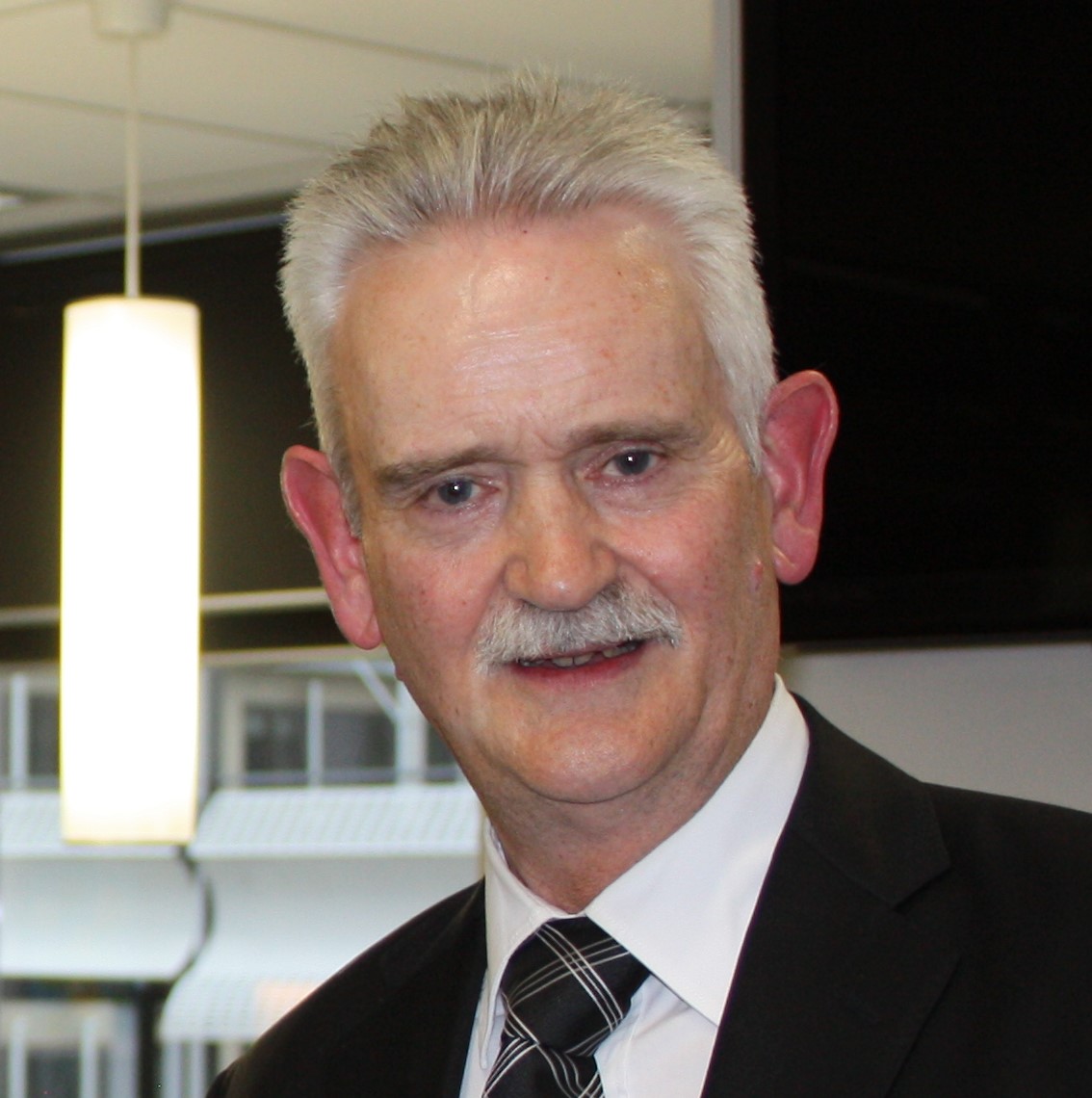 Thirty-two members and guests attended today’s International Women’s Day Breakfast in the splendid new Stadium Room at Kooyong.
Thirty-two members and guests attended today’s International Women’s Day Breakfast in the splendid new Stadium Room at Kooyong. Following a welcome by MC Anne Scott I made some opening remarks about the history and significance of International Women’s Day.
Following a fulsome and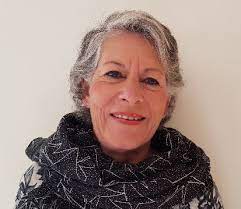 tasty breakfast of Corn and Zucchini fritters and crushed (not smashed!) avocado, topped with a poached egg and with Yarra Valley Persian feta on the side, we heard from our guest speaker Susan Campbell. Susan spoke about her personal experience growing up in a world in which women’s traditional roles were being challenged and changes were occurring in attitudes to gender equality.
tasty breakfast of Corn and Zucchini fritters and crushed (not smashed!) avocado, topped with a poached egg and with Yarra Valley Persian feta on the side, we heard from our guest speaker Susan Campbell. Susan spoke about her personal experience growing up in a world in which women’s traditional roles were being challenged and changes were occurring in attitudes to gender equality.
 tasty breakfast of Corn and Zucchini fritters and crushed (not smashed!) avocado, topped with a poached egg and with Yarra Valley Persian feta on the side, we heard from our guest speaker Susan Campbell. Susan spoke about her personal experience growing up in a world in which women’s traditional roles were being challenged and changes were occurring in attitudes to gender equality.
tasty breakfast of Corn and Zucchini fritters and crushed (not smashed!) avocado, topped with a poached egg and with Yarra Valley Persian feta on the side, we heard from our guest speaker Susan Campbell. Susan spoke about her personal experience growing up in a world in which women’s traditional roles were being challenged and changes were occurring in attitudes to gender equality. She also spoke about her experience in Australia and overseas, mentoring young women embarking on leadership roles. It was an interesting and thought-provoking talk and you can read more about the talk in the report below.
The breakfast was a great success thanks to the organisers, Julie Clark, Terry Kitchen and Charlotte England, and MC Anne Scott.
(The text of my remarks is below.)
President’s Drinks Party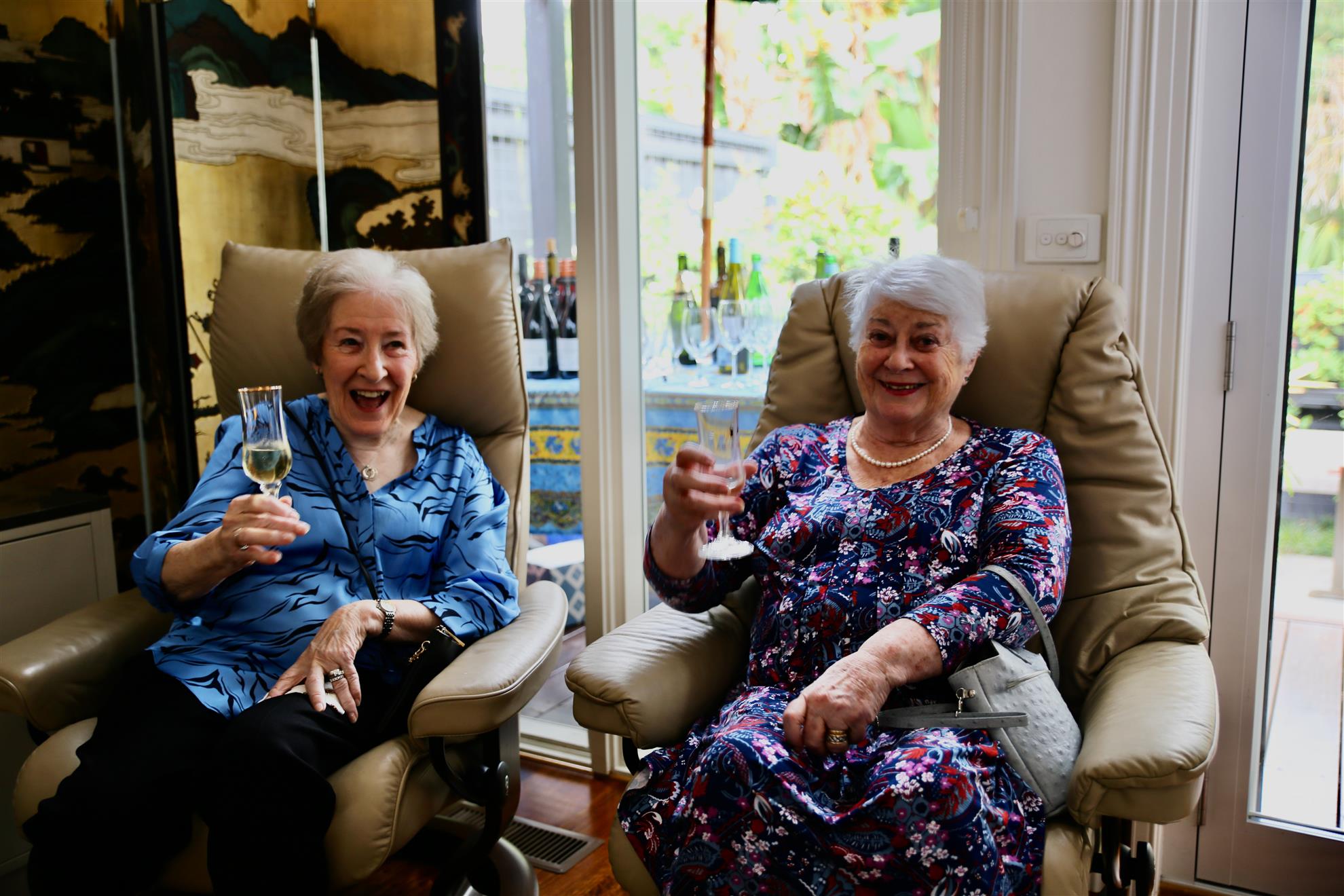

The President’s Drinks Party was held last Sunday and attended by twenty-four members and partners. Melbourne threw one of its wobbly weather days with rain to start with followed by gusty winds but this neither dampened nor chilled the party spirit and we all enjoyed a pleasant afternoon of food, wine, and conviviality.
(Lynda Shore and Anne Scott, right: more photos can be seen at https://photos.app.goo.gl/Z2zy4XMzPRcznwew9)
David Corrigan lunch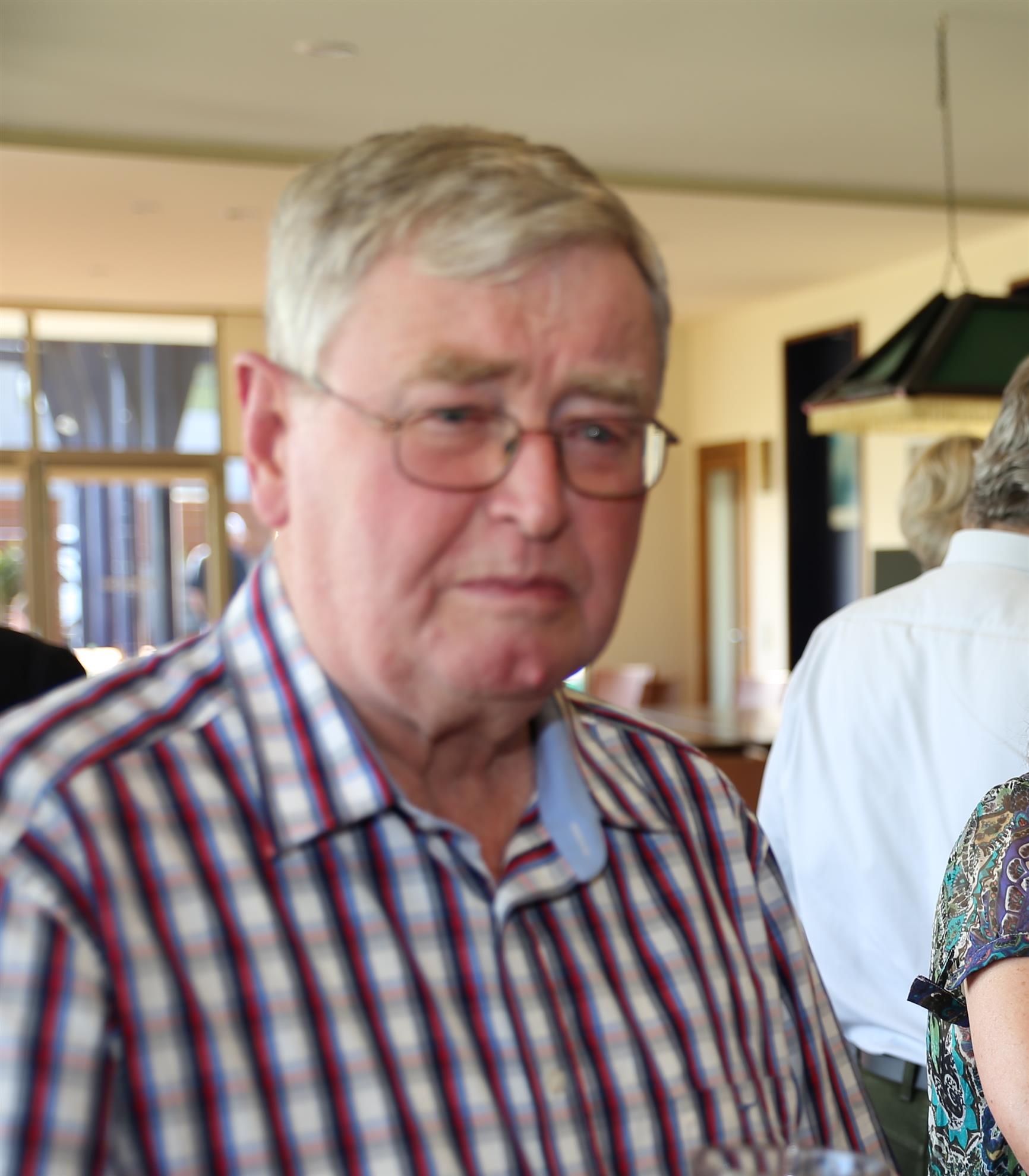

Next Tuesday is our special lunch in honour of PP David Corrigan who resigned in December 2021 after 47 years as a Club member and 58 years as a Rotarian. Join us and hear PDG Dennis Shore and PP David Rush talk about David Corrigan’s long and distinguished contribution to Rotary and our Club. Invitations for the lunch will be sent out tomorrow.
March Board meeting
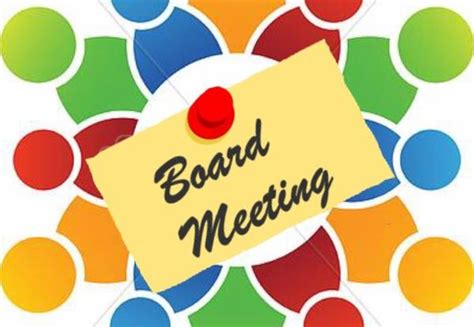 The Club’s Board meets tonight. In addition to receiving reports from the Treasurer and the Avenue of Service Directors, the Board will discuss how the Club recognises the contribution of guest speakers; whether the length of lunchtime meetings should be extended to allow more time for speakers and Avenue of Service reports; and the amount of the Club’s membership dues for 2022/23.
The Club’s Board meets tonight. In addition to receiving reports from the Treasurer and the Avenue of Service Directors, the Board will discuss how the Club recognises the contribution of guest speakers; whether the length of lunchtime meetings should be extended to allow more time for speakers and Avenue of Service reports; and the amount of the Club’s membership dues for 2022/23.A report on the Board’s decisions will in my Post next week.
Forthcoming events
Monday 14th - Current affairs Interest group meeting. The Fixers will discuss the topic: ‘How can authorities revitalize the CBD?’
Tuesday 15th - David Corrigan Lunch
Tuesday 22nd - Club meeting by Zoom
Tuesday 29th - Club meeting at Kooyong
President Andrew
Thought for the Week
Being International Women’s Day I thought it was appropriate to quote one of the great champions of women’s rights, the late Justice Ruth Bader Ginsburg who was only the second women to be appointed to the nine-member US Supreme Court:
People ask me sometimes, ‘when will there be enough women on the court?’ My answer is: ‘When there are nine.’ People are shocked. But there’d been nine men, and nobody’s ever raised a question about that.
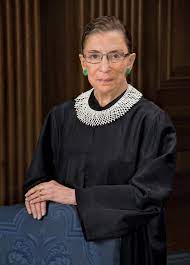
Justice Ginsburg (1933-2020) knew first-hand what it was like to be discriminated against as a woman. After gaining a Bachelor of Arts degree from Cornell University she commenced laws studies at Harvard. She was one of only nine females in a 500-person class and was criticised for taking a man’s spot in the law school. She later moved with her husband to New York and continued her law studies at Columbia University where she graduated top of her class in 1959.
Ginsburg’s exceptional academic record did not shield her from the workplace discrimination women faced in the 1960s and she initially had difficulty finding a suitable job. Thanks to a reference from one of her Columbia professors she eventually got a position as clerk to a US District Court Judge. Later she worked for a number of law firms, but always at a lower salary than her male counterparts.
In the 1970s Ginsburg became the first tenured female professor at Columbia University, led an American Civil Liberties Union campaign against gender discrimination and argued several landmark cases before the U.S. Supreme Court. Her approach to gender discrimination was broad, fighting not only for women but also men who were discriminated against.
In 1980 Ginsburg was appointed to the Court of Appeals for the District of Colombia, and in 1993 she was appointed to the Supreme Court of the United States.
During her 27 years on the Supreme Court, she continued to champion women’s rights, tackling specific areas of discrimination and violations of women’s rights one at a time, rather than attempting sweeping limitations on gender discrimination. Following her death in September 2020, she was described by her fellow justices as a person of grace, civility and dignity who had done more than any other American to ensure equal justice for women under the law.
International Women’s Day Breakfast, 8 March 2022
Opening remarks by President Andrew Crockett
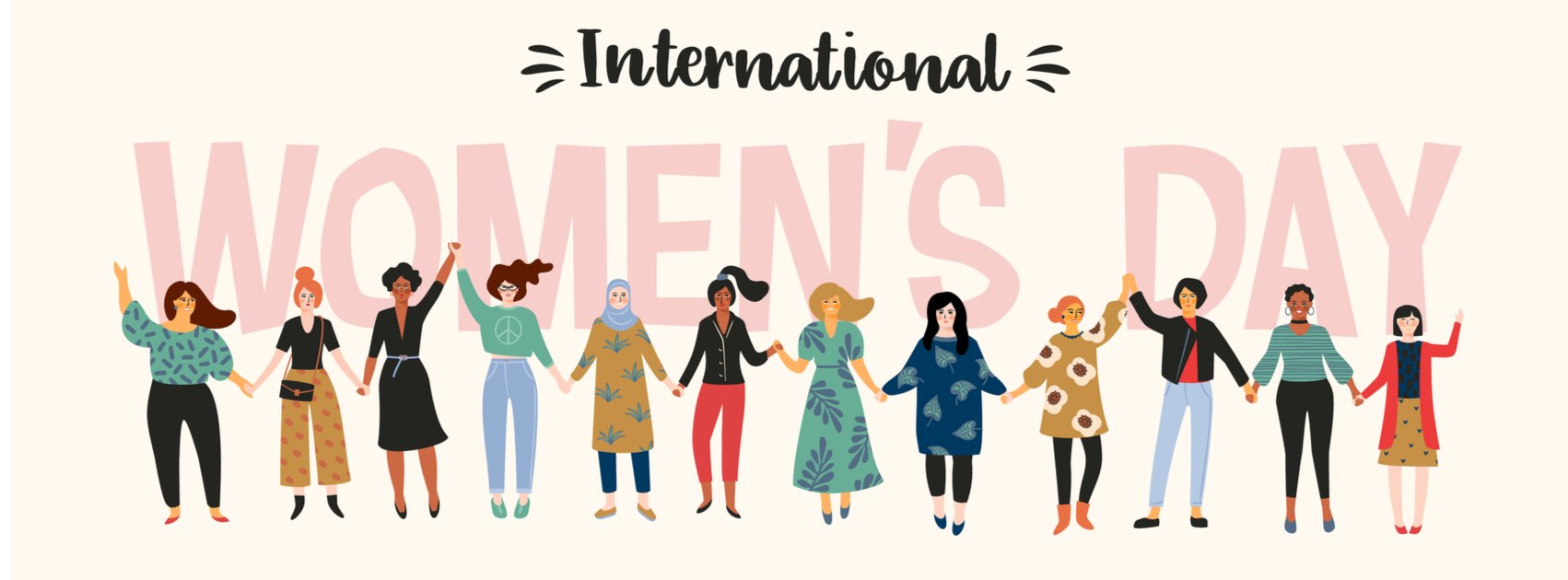
Today we celebrate the achievements and untapped potential of women across the globe and renew our collective efforts to eliminate all forms of gender inequality and abuse.
And as we reflect on the significance of the day let us spare a thought for the women, men and children of Ukraine and other places around the world who are facing the worst form of abuse – armed conflict, and its senseless and indiscriminate destruction of innocent lives, homes, livelihoods and hope.
The story of International Women's Day begins in 1908 when 15,000 women marched through New York City demanding shorter hours, better pay and the right to vote. Two years later, an International Conference of Working Women was held in Copenhagen and the idea of an International Women's Day was born.
International Women's Day was observed for the first time in Austria, Denmark, Germany and Switzerland on 19 March 1911 when more than a million women and men attended rallies campaigning for women's rights to work, vote, be trained, to hold public office and end discrimination.
International Women's Day is now held annually on 8 March to celebrate the social, economic, cultural and political achievements of women. The day also marks a call to action to accelerate gender parity.
Since the first International Women’s Day in 1911 there have been attitudinal shifts in the way many societies think about gender equality and the emancipation of women. But even in many advanced nations, including Australia, women are still not paid the same as male counterparts and women are still not present in equal numbers in business, the professions or politics.
In Australia the gender pay gap is 14% and Australian women in 2021 had to work about two months more, on average, to earn the same as men.
The UN Secretary-General has said that achieving gender equality and empowering women and girls is the unfinished business of our time, and the greatest human rights challenge in our world. This challenge covers a wide range of issues including health, education, and the elimination of violence against women.
In Victoria the government has identified many areas in which women and girls are not treated equally. They include the fact that:
- boys receive more attention in the classroom than girls;
- girls receive less pocket money than boys;
- Victorian women do nearly twice as much unpaid work as men;
- women retire with half the superannuation savings of men and
- are at greater risk of homelessness.
So, there is still some way to go before we have full gender parity which can only come from full acceptance of the equal rights of people of all races and creeds regardless of gender.
Gatherings like this Breakfast serve to maintain the momentum for change.
International Women’s Day belongs to all people of good will who want to see an end to discrimination based on gender.
The prominent feminist writer Gloria Steinem said, ‘the story of women's struggle for equality belongs to no single feminist, nor to any one organization, but to the collective efforts of all who care about human rights.’
Rotary embraces the cause of gender equality and strives to achieve gender parity in its membership and on its boards and committees. Diversity, equity and inclusion is essential to the realisation of Rotary’s vision of a world where people unite and take action to create lasting change.